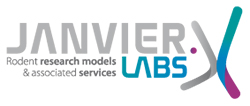Effect of Treatment with DL-carnitine after Acute Alcoholization in Rats
DOI:
https://doi.org/10.23675/sjlas.v35i3.150Abstract
Acute ethanol consumption leads to the formation of free radicals. Among other functions, carnitine has an important antioxidant role and chronic ethanol use leads to carnitine deficiency. The objective of the present study was to determine the variation in the carnitine pool (free cernitine plus its acylated derivates) and the hepatic oxidative stress occurring in the presence of acute ethanol administration followed by treatment with carnitine in rats. Male Wistar rats weighing approximately 60 g were divided at random into four groups of 7 animals each, i.e., group receiving carnitine, group receiving carnitine plus ethanol, group receiving ethanol alone, and untreated control. Acute administration of ethanol and/or carnitine did not change the total amount of carnitine and its derivates in plasma but did alter their profile with the free carnitine increasing to over 75%, while the mean percentage of free carnitine in the control group was 33.2%. There was marked carnitine excretion in the groups treated with DL-carnitine. Higher lipid peroxidation was detected in the groups receiving carnitine, with the maintenance of vitamin E. We conclude that the administration of DL-carnitine after an episode of alcohol intoxication has no beneficial effect in terms of hepatic oxidative stress.







